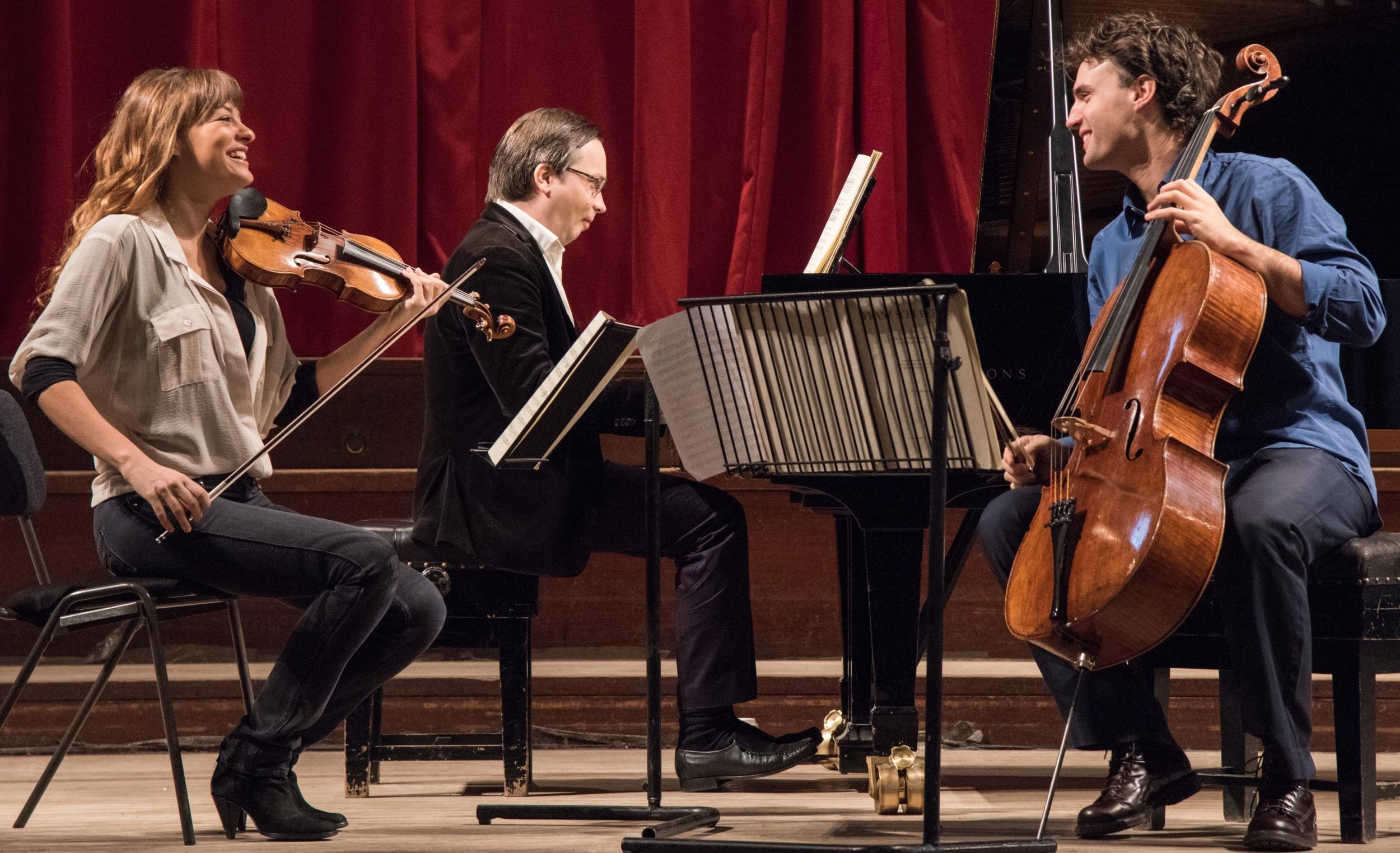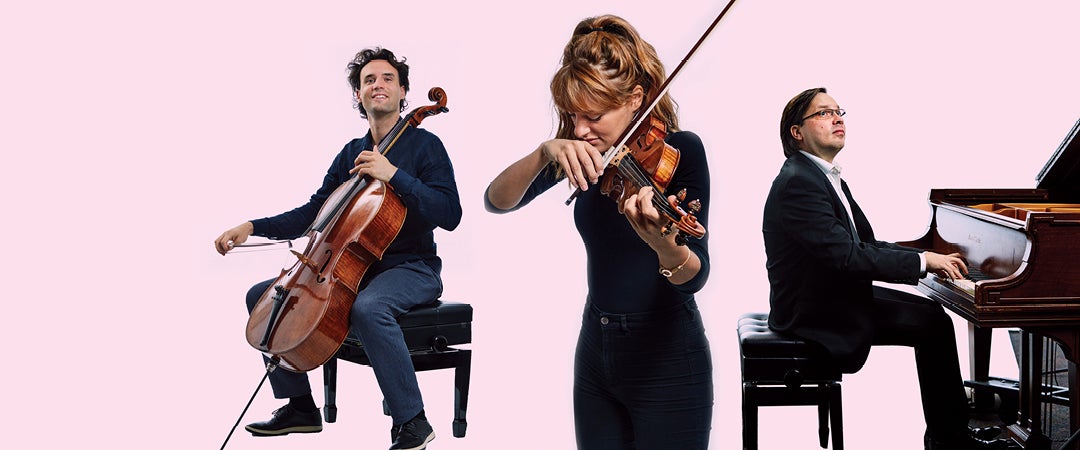Benedetti/Elschenbroich/Grynyuk review: Elschenbroich’s playing was gracefully nuanced but Benedetti rarely found beauty in her sound
The Schubert cast its expected spell and the Brahms trio became a cornucopia of lovely ideas

Violinist Nicola Benedetti, cellist Leonard Elschenbroich and pianist Alexei Grynyuk are leading soloists bound by a nice kind of history. The violinist and cellist played chamber music together at the Yehudi Menuhin School; they then met – and decided to collaborate with – the pianist, who was studying at the Royal Academy. The trio established a symbiosis and developed a vibrant ensemble sound. For the last 10 years they’ve premiered new works and toured the world to acclaim – their appearance at the Wigmore Hall followed a seven-city tour of Australia.
Their programme this time promised a pleasing symmetry. Strauss’s Cello Sonata in F, written when the composer was 19, would team Grynyuk with Elschenbroich, and the same composer’s Violin Sonata in E flat would pair him with Benedetti. All three would then play Schubert’s Notturno in E flat and Brahms’s Piano Trio No 2.

The first Strauss work is seldom performed, and one could see why, but the second, which won admirers led by Heifetz, is a farewell to the world of Brahms and was played as such. The Schubert cast its expected spell and the Brahms trio – reflecting the composer’s mellow maturity – became a cornucopia of lovely ideas. Elschenbroich’s playing was gracefully nuanced throughout but Benedetti rarely found beauty in her sound; Grynyuk held the work together with authority, although his dynamics ranged from loud to very loud indeed.
Join our commenting forum
Join thought-provoking conversations, follow other Independent readers and see their replies
Comments
Bookmark popover
Removed from bookmarks